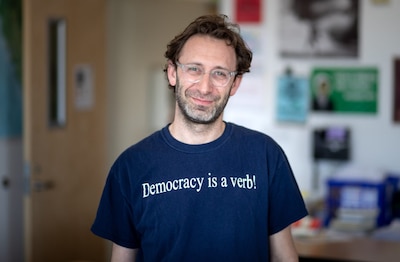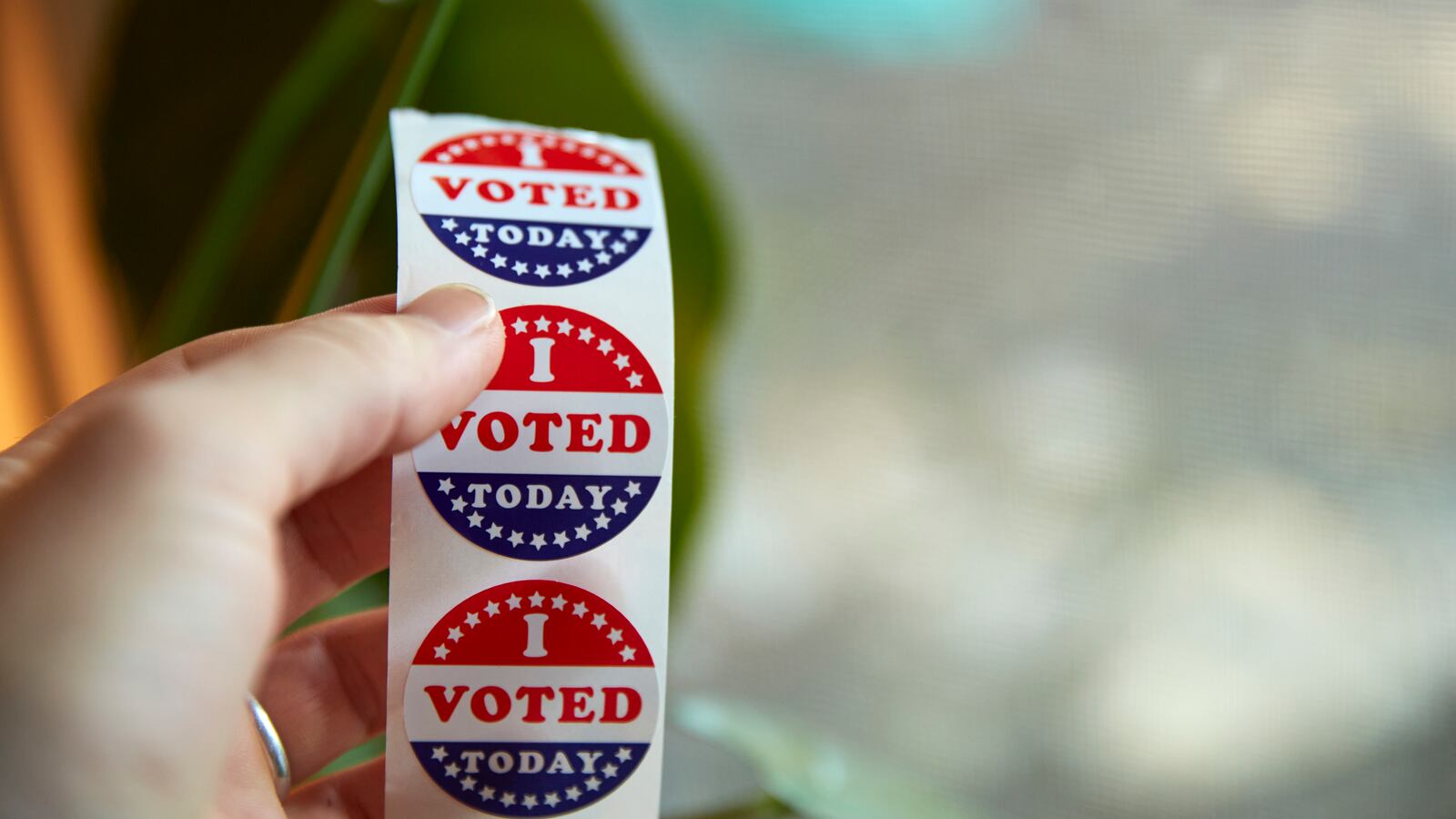My fellow civics teachers, in Georgia:
Here I thought we’d hit the motherlode with a presidential impeachment in January. While no one would wish for such an event, it was truly the kind of process I thought might bring learning to life — as the Clinton impeachment did for me in high school. I tried to translate the intricacies of the process and make it meaningful for my students. It was something they would never forget, right?
Now, here we are in November. Impeachment has long been forgotten as we approach the end of this marathon of a year. The Trump presidency has been a wild time to teach government from the start, with more content and intrigue than anyone could ask for. But this year, the news cycle has moved too fast to measure the lasting impact of any one development. I find myself trying to explain to the empty black Zoom boxes what extraordinary times we’re living in and how these moments often lack historical analogue.
The lessons have all felt fleeting, until I reached the one that really landed.

One civics teacher to another: I’m writing to offer you a suggestion, born out of my years working to inspire civic engagement among my students. The lesson that matters is that our students themselves are civic actors who can have a real impact on the systems that shape their lives.
Here in California, where I teach, that pitch to them involves registering and pre-registering students as voters, and — since so few of our elections are truly contested — getting them to become advocates for the ballot measures they each believe in. Distance learning has been a mixed bag, but there has been nothing more rewarding than getting students into the mindset that elections matter.
My students reached out to family and friends, made sure they were registered to vote, and brought dozens of them together in a virtual Voter Education Night. The few of them who were newly eligible to vote were definitely invigorated by the process, but the larger group of students who weren’t, but got to teach real voters how the process could impact their real lives, still felt that their voices matter.
This, I’ve come to realize, is the true power of a good government or civics class. Understanding the intricacies of each lawsuit and certification these last few weeks may make the headlines, but the heart of the story are these opportunities for all Americans to participate.
This is why I’m writing to you, my colleagues in Georgia. In your state, there are more than 20,000 mostly high school seniors who became eligible to vote in the January runoff election since Election Day. Those seniors, locked out of the process on Nov. 3, now have a chance to shape who represents them in the U.S. Senate, and improbably, even who controls that Senate. Virtually any federal policy they might personally be passionate about could hang in the balance of these runoff elections.
In my experience, the lessons we want our students to internalize are best learned through real and meaningful civic participation and action. Help students register to vote in your (virtual or in-person) classroom before the Dec. 7 deadline. Give them a chance to make sure their family and friends are registered, too. Have them evaluate the four Senate candidates, their positions, and what their election might mean for Georgia and the country. Most importantly, have them encourage others to vote — absentee, in-person early, or on Jan. 5, Election Day.
Help make the new year one that starts with a memorable civic experience, as the whole country watches your state.
Already, Georgia’s young people have shown incredible interest in this process. They represented a bigger share of the state electorate this fall than any other group of 18-29 year olds in the country, according to data from CIRCLE at Tufts University, with a full 20% of votes in Georgia coming from young people. That shapes the results of races but also puts new and real pressure on legislators at the local, state, and federal levels to address the issues that young people care about. Georgia advocates know this too, with The New Georgia Project founder Stacey Abrams often referencing the 26th Amendment — along with the more commonly referenced 15th and 19th Amendments — when she talks about voting rights.
When voters aged 18-20 gained the right to vote in 1971, it moved us a little bit closer to being the true democracy we strive for. Our role as government teachers is to be their advocates and their bridge to a lifetime of civic participation. I’m jealous that you get yet another chance to do so.
Joel Snyder is a government and economics teacher at Animo Pat Brown Charter High School in the Florence-Firestone neighborhood of Los Angeles. He has been teaching for 18 years, each year believing more and more in the power of youth to fulfill the true promise of our country.



